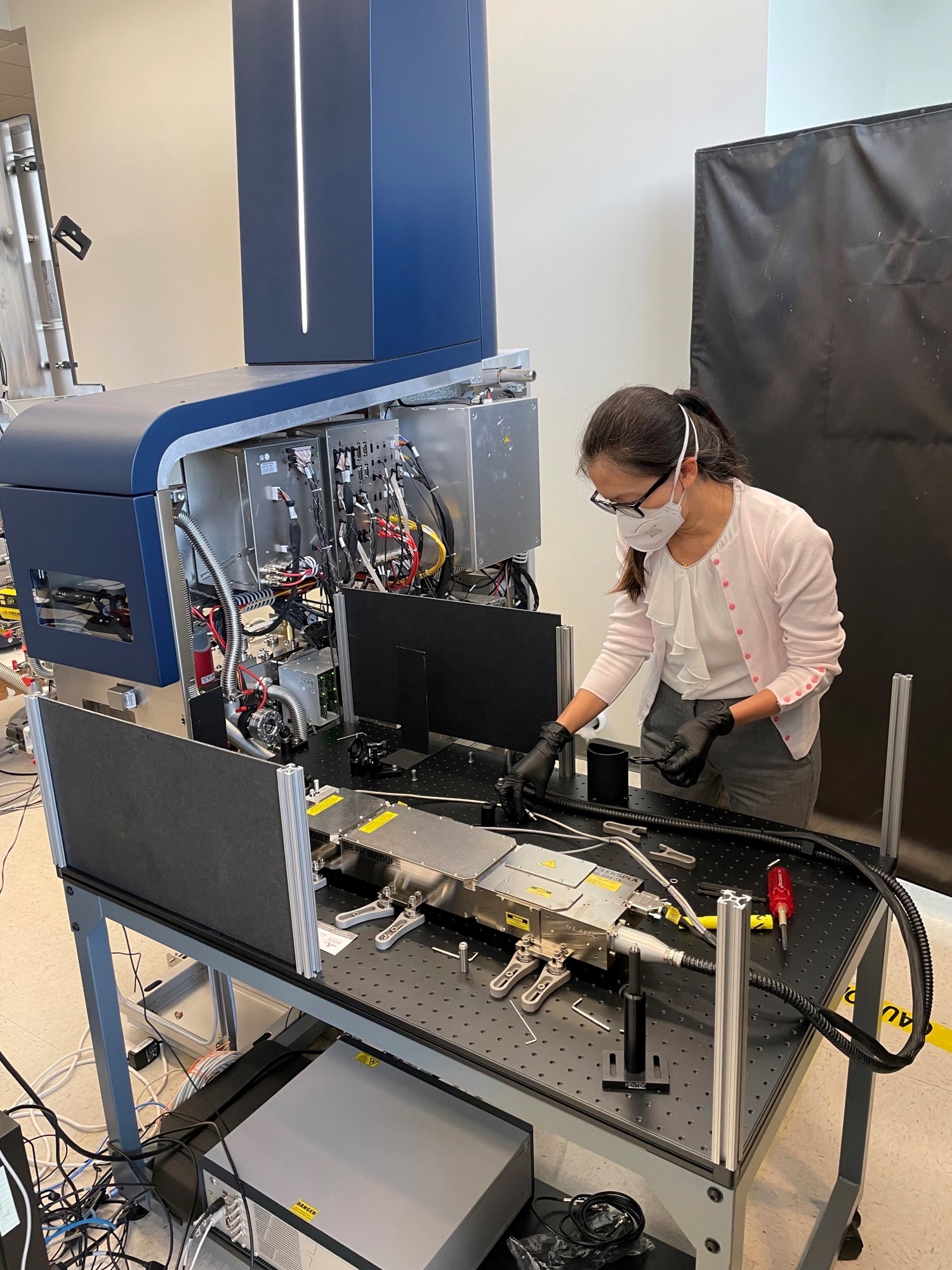RCC Spotlight: Dr. Fanny Liu

Dr. Fanny Liu earned her bachelor's and master's degrees in chemistry at Heidelberg University in Heidelberg, Germany. She went on to complete her D.Sc. in chemistry at the same institution. Her doctoral thesis focused on developing LSPR-based optical biosensor for the label-free detection of biomolecular interactions in high-density peptide arrays. Following her dissertation defense, Dr. Liu spent three years as a research scientist at the Karlsruhe Institute of Technology.
In 2014, she joined Dr. Christian Bleiholder’s research laboratory in the Department of Chemistry and Biochemistry at Florida State University as a postdoctoral researcher. In 2019, she was promoted to research faculty. Dr. Liu currently serves as member-at-large of the International Society for Ion Mobility Spectrometry and as chair of the Early Career Researcher Committee within Consortium for Top-Down Proteomics.
Dr. Liu’s research focuses on developing new analytical methods that are used to study biomolecules involved in health and disease regulation. More specifically, she uses mass spectrometry and ion mobility spectrometry to analyze proteins and protein complexes. In collaboration with Dr. Bleiholder and two scientists from Bruker Corporation, Dr. Liu created and developed the Tandem-Trapped Ion Mobility Spectrometry which is used to perform top-down protein analysis. The Bleiholder group has worked closely with Bruker for nearly a decade, contributing to both the instrument design and the creation of workflows that enable researchers worldwide to use it in biomolecular studies.
 Dr. Liu using the Tandem-Trapped Ion Mobility Spectrometry machine she co-developed.
Dr. Liu using the Tandem-Trapped Ion Mobility Spectrometry machine she co-developed.
The Bleiholder group’s research has made a significant impact on the biochemistry world. Their studies have enabled scientists to gain deeper insights into how proteins and protein complexes behave. Two years ago, they published a paper in the Journal of the American Society for Mass Spectrometry, where they introduced a new workflow for top-down proteomics. That paper was recently honored with the Ron Hites Award from the American Society for Mass Spectrometry, recognizing the group’s contribution to advancing the field. Additionally, the group is working with a major pharmaceutical company to develop multi-specific antibodies for cancer and autoimmune diseases.
To conduct this impactful research, Dr. Liu relies on high-performance computing, and this is where the Research Computing Center plays a vital role. With access to RCC’s advanced resources, she can efficiently analyze large datasets in a fraction of the time it would otherwise take. This valuable support helps her team stay focused on discovery, innovation and advancing scientific knowledge.
